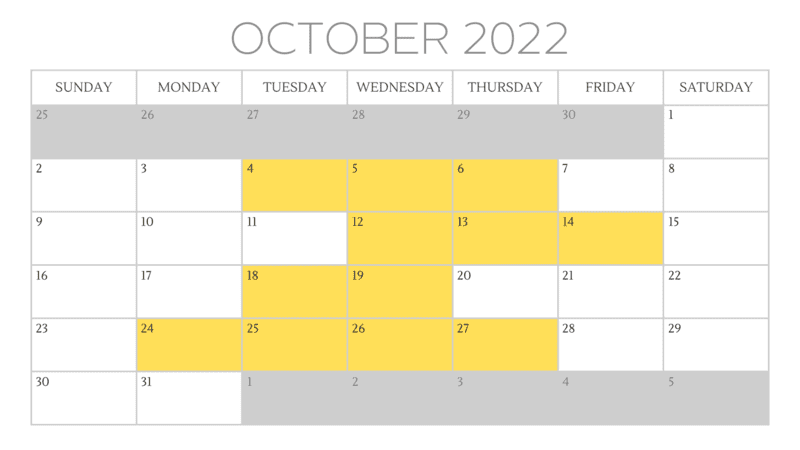Being on reserve can be both a rewarding adventure and an exhausting test of your resilience.
Reserve is a little like flight crew roulette. You can never be entirely certain where crew scheduling will send you, or what kind of trip assignment you might receive.
Sometimes you will love being on reserve, and other times you will hate it, but it is a kind of rite of passage in the airline industry, and therefore unavoidable. So, make sure your seatbelts are securely fastened as we launch into a description of the turbulent experience that is, being on reserve.
Table of Contents
What Does it Mean When a Flight Attendant is on Reserve?
To be on reserve is essentially like being “on call.”
Reserve flight attendants are responsible for filling in for other flight attendants who cannot work their trip for any reason (illness, family emergency, violated legalities, etc.)
Do You Get Paid to Be on Reserve as a Flight Attendant?
Yes!
While on reserve you will receive a “guarantee” of a certain number of paid hours, depending on your contract, and the airline you work for, this could be 60-75 hours.
You will be paid this whether you fly or not.
This means it is entirely possible that you will sit at home most of the month and still get paid as if you flew 75 hours.
Of course, if crew scheduling needs you for more than 75 hours while on reserve, you will get paid for the additional time too.
Side note: While it may seem like a dream to get paid to hang out at home, there is one downside to not being “used” while on reserve. That is, you won’t earn peridium.
Peridium, for those who don’t know what it is, is a small additional hourly pay that flight attendants earn while they are actively on a trip. (Even during layovers).
Therefore, some flight attendants will want to work more on reserve in order to earn the peridium.
What is a Reserve Schedule Like When You First Start?
Every airline operates their reserve system a little differently, but one thing remains consistent, the more junior you are the more reserve you will have to serve.
Generally speaking, however, your reserve schedule will be determined a month at a time, based on your monthly bids.
In a reserve bid, you will bid for which days you want to be “on” and which days you would like to have off.
Typically, in a 31-day month, you can expect to be scheduled for 19 days of reserve with 12 guaranteed days off.
Reserve days are usually arranged in blocks of 3-6 days. With 2-4 days off in between.
Naturally, the more junior you are, the less likely you are to get your desired days off. So, expect to be working Thursday-Sunday.
Example Reserve Schedule

In this example reserve schedule, the yellow days would be your days “off” and the white days, your days “on.”
This would be a really good schedule for a junior flight attendant because you don’t have any super long blocks of days “on” and you have your days off arranged in such a way that you can pick up at least three two-day trips.
The Delta Exception
Delta has the most unique reserve schedule.
Delta operates reserve on an ADAY schedule, with junior flight attendants receiving 6 ADAYs per month.
During these days you are on call and each day is worth a guarantee of about 4.6 hours. If you aren’t flown during a single one of these ADAYS you will be paid for 28 hours.
If you are used, you’ll be paid for the credit of the trips you’ve flown, or 28 hours, whichever is higher.
Reserve Assignments
At most airlines, there are two ways you may spend your days on reserve, ready reserve or standby.
Ready Reserve
Ready reserve is how you will spend most of your time on reserve.
It refers to the type of reserve where you hang out waiting for crew scheduling to call you up and give you a trip.
At some airlines you can even put in bids for trips that need to be filled, giving you a little more control over the assignments you get while on ready reserve.
Typically, you will be given 2-3 hours from the time you receive the assignment to the time you are required to arrive at the airport for your trip.
Standby Reserve
Standby reserve refers to reserve shifts that you will have to spend at the airport ready to go.
Standby, also known as “on premise reserve” (OPR), generally are organized in shifts of 4-6 hours, and are treated as flight hours.
Most of the time there are designated waiting rooms at crew bases for standbys, and crew scheduling will contact you either through your personal cell-phone or via an overhead announcement system.
The words, “flight attendant Brown, please call crew scheduling…” are forever burned into my memory.
You will usually have to report to the aircraft ASAP, after receiving an assignment off of standby.
But you can also get some of the best trips as a junior flight attendant while on standby, sometimes it’s the only way to get international trips as a new hire.
If You Want to Fly More Hours While on Reserve, Can You Pick Up Extra Trips?
Absolutely! But picking up trips while on reserve can be tricky because you have to maintain proper legalities for your days “on”.
Legalities are rules set by governing agencies, like the FAA, that dictate maximum working limits for flight attendants.
Common FAA legalities that might complicate picking up trips while on reserve include:
- 24-in-7: Meaning you must have at least 24 hours off in any 7-day stretch.
- 35-in-7: A limit that prevents airlines from scheduling you for more than 35 flight hours in a given 7-day stretch (you can waive this legality if you want to fly more).
- Minimum rest: Depending on the type of sequence you worked (international, domestic, red-eye) you are required to have a certain number of hours of rest between flights. This must be met before you can pick up extra trips.
I used to pick up about an extra 15-20 hours of flying per month when I was on reserve at American, but I was considered a “high time” flyer, meaning I would fly more than 90 hours a month.
Why Picking Up Extra Trips?
The main reason to fly extra trips during your days “off” on reserve, is because those trips are paid “above” your guarantee.
Meaning if you fly on your days “off” but don’t get called to work on your days “on” you still get paid your full 78-hour guarantee in addition to the money you earn on your extra trips.
To give you an example of what I mean…
Crew scheduling might only actually need you for three 15-hour trips during your reserve month, for a total of 45 hours. So, you pick up an extra 20 on your days off.
You will get paid for the 78 of your guarantees plus the 20 hours you picked up for a total of 98 hours, even though you will have only officially worked 65.
How Long Should You Expect to Be on Reserve?
Depending on the airline you work for you can expect to be on reserve anywhere from a year to your whole career.
Most of the time you will be on reserve in some form for the first 5-10 years.
After that, you should have enough seniority to be on reserve less, or not at all. How long you are on reserve is generally a product of the type of reserve system your airline uses.
Types of Reserve Systems
As I mentioned above every airline operates reserve a little differently.
There are two main types of reserve systems:
- Straight reserve
- Rotating reserve
Straight reserve systems, like the one used by United, keeps you on reserve every month until you are senior enough to hold a pre-set schedule (known as a “line”).
Straight reserve systems sometimes have a bad reputation, but the key benefit of a straight reserve system is that once you have the seniority to get “off of straight” you’re done for good (barring things like pandemics that upset seniority).
Rotating reserve systems, like the one used at American, has you served reserve at an interval (every other month or every third month) depending on your seniority.
Generally speaking, you will be on reserve for a longer portion of your career at airlines with rotating systems, but you won’t have to serve it continuously, which allows you to better plan life events.
Then, of course, there is the Delta exception. At Delta, the ADAY system is kind of like a rotating system. But because ADAYs can be traded, they are not as dependent on seniority.
Pros and Cons of Being on Reserve
Reserve can sometimes get a bad reputation, but there are both pros and cons to being on reserve.
Pros of Being on Reserve
As new-hire, or junior, flight attendants these are the pros to being on reserve:
- 👍 More likely to hold off on holidays and weekends
- 👍 More likely to get international assignments
- 👍 Strategic chances to make more money for less work
Some mid-seniority flight attendants will even bid onto reserve (if they work for an airline that has rotating reserve) because it allows them to have more control over their days off, and because they can often snag better trips than they would on their lines.

Cons of Being on Reserve
As a new-hire, or junior, flight attendant, these are the cons to being on reserve:
- 👎 Little control over what trips you will fly
- 👎 Chances of being accidentally flown into your days off (they usually have to give it back to you later though)
- 👎 Having to pack with no idea where you will be sent (this is an art, trust me)
- 👎 Fatigue
- 👎 Having to be close enough to base to get there on time (especially if you’re a commuter)
I remember being on reserve was exhausting at times, especially during the pandemic when call-outs were at an all-time high. Only getting 12 hours off before you are back in the clutches of crew scheduling can leave little time to get your other life-tasks done, including house chores and, well, sleeping. So, it is key not to overschedule yourself in your off-time on reserve and to prioritize rest.

Conclusion
When on reserve you must be available to the airline, and ready to set off on a trip with very little notice. Sometimes you may spend days just sitting around, waiting for an assignment, others you will be flown to the point of exhaustion.
(There is a reason T-shirts reading “property of crew scheduling” are popular among new-hire flight attendants, they really do “own” you while you are on reserve…)




